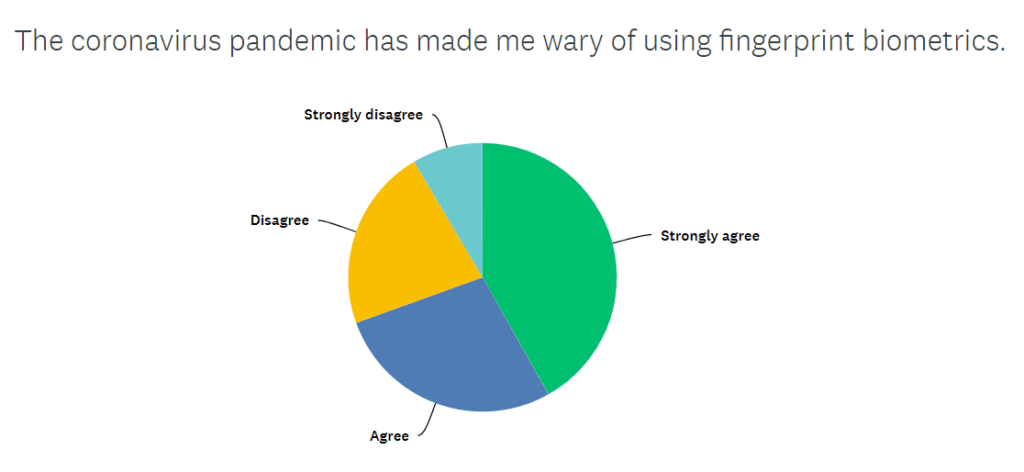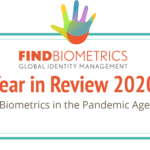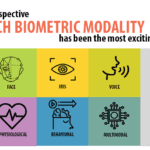Going into the FindBiometrics Year in Review survey for 2020, it was well understood that the COVID-19 pandemic would have an impact on the results. And in our first in-depth analysis, that expectation cashed out in terms of a surprising change in the rankings of which modalities respondents thought were most exciting – or at least a change that would have been surprising a year ago.
This week, we’re going to tackle the impact of COVID-19 even more directly by looking at a couple of questions that were new to our long-running survey.
One of those questions asked respondents whether they agreed with the statement, “The coronavirus pandemic has made me wary of using fingerprint biometrics.” All told, about 69.5 percent of respondents agreed, with 41.8 percent of them strongly agreeing. Only about 8.5 percent strongly disagreed.

The responses tie in nicely with the results concerning the year’s most exciting modality. Whereas fingerprint biometrics had consistently ranked in second place for the last couple of years (with facial recognition in first), for 2020 they dropped to third place, usurped by iris recognition. In light respondents’ wariness about using fingerprint biometrics, it seems clear that this is all about COVID-19 and the attendant concerns about touching shared surfaces – a potential vector of viral transmission, even if airborne transmission is generally thought to be more prevalent.
There was still plenty of excitement about mobile fingerprint scanning and fingerprint-scanning payment cards in 2020 – these are single-user applications that don’t require users to touch shared surfaces. But it’s clear that the shared reader segment of the fingerprint sensor market has taken a hit.
Facial recognition, meanwhile, is hotter than ever. It’s a contactless modality, and during 2020 some vendors augmented their offerings by adding temperature detection technology that could signal whether subjects are potentially running a fever – a common symptom of COVID-19. That appears to have been a smart move, given responses to the Year in Review survey’s other direct question about the pandemic, which asked respondents to agree or disagree with the following statement: “I am more likely to enter a public building if a wellness screening solution – such as fever detection, wellness declaration, or immunity passport – is required for access.”

All told, about 77.1 percent agreed, with 37.6 percent indicating that they strongly agreed. Only three percent said they strongly disagree. That suggests a healthy appetite for the growing number of temperature-scanning biometric access control solutions, and for emerging health affirmation solutions such as mobile immunity credentials.
All of that could help to further popularize contactless biometrics going forward, though it’s still not clear whether the trends prompted by the pandemic will have lasting, durable effects once the pandemic has eased due to seasonal change and widespread vaccination.
On that note, it’s worth taking a moment to consider the overlap between some of these numbers. Just under 70 percent of Year in Review respondents indicated that they are concerned enough about COVID-19 transmission that they would avoid using shared fingerprint readers, while about 77 percent indicated that they’d like public buildings to deploy technologies designed to mitigate viral spread. One way to read those results is to speculate that somewhere between 23 percent and 30 percent of respondents don’t feel that viral transmission is a serious enough concern to warrant these safety measures.
Here’s another number: 71 percent of Americans polled in a December Kaiser Family Foundation survey said they would get vaccinated against COVID-19. An ABC News/Ipsos poll found that 84 percent were interested in the vaccine. All of which might suggest that the Year in Review results discussed above aren’t just a reflection of expert sentiment about biometric technologies, but also reflect broader attitudes toward the COVID-19 virus and related mitigation measures.
*
The 2020 FindBiometrics Year in Review is made possible by our sponsors: Aware, BioConnect, FacePhi, Innovatrics, Jumio, NEC Corporation of America, and Onfido.
–
January 21, 2021 – by Alex Perala








Follow Us